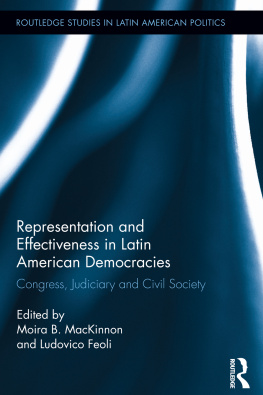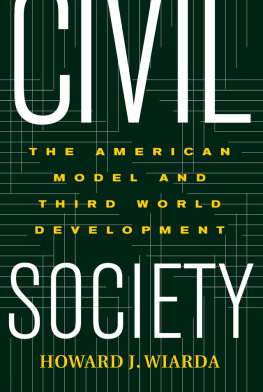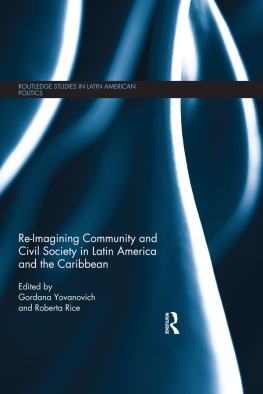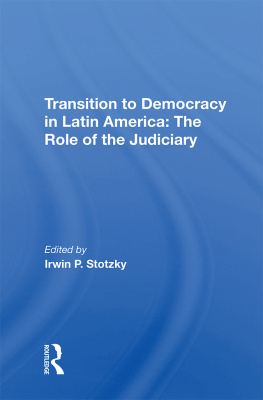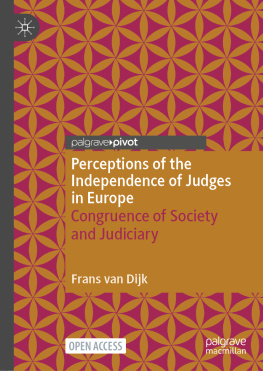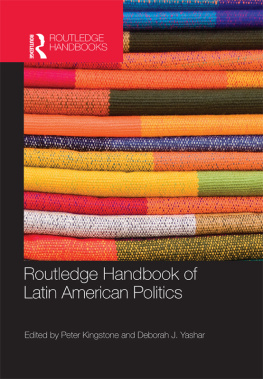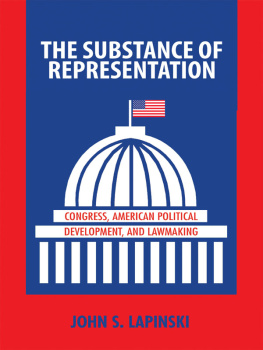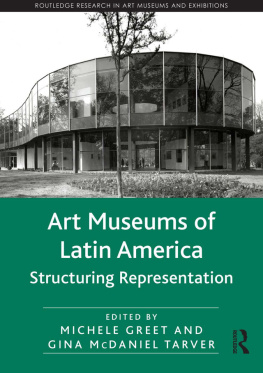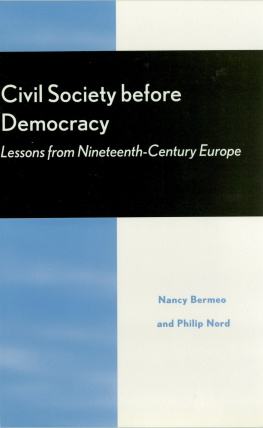A lucid, thought-provoking book that asks the right questions and offers penetrating answers sure to stimulate lively debate.
Eduardo Silva, Tulane University
This book represents an unprecedented attempt to tackle a key issue for democratic theory and the results of democracy at the same time. The fact that it adopts a comparative perspective, focusing on different national cases in Latin America, is undoubtedly a wise decision.
Manuel Alcntara, Universidad de Salamanca
Representation and Effectiveness in Latin American Democracies
Legislatures, the judiciary and civil society are important actors in representative democracies. In what ways and how well do they represent? How effectively do they carry out their institutional and social roles? Both questions refer to the key dimensions of democracy analyzed in this book: representativeness and effectiveness, respectively. While they have been developed separately in scholarly work on institutions and regimes, there is little work considering them simultaneously, and focusing on their interaction. Using quantitative and/or qualitative methods, contributions from top scholars in the field of legislatures, the judiciary and civil society examine these two concepts and their relationships in four Latin American countries: Argentina, Brazil, Chile and Mexico.
The chapters engage in a larger set of theoretical debates about different approaches to representation in each sphere. In doing so, they also debate how effectively these spheres carry out their roles in each country: whether Congress is institutionalized, its accountability and its performance as a lawmaker; whether the judicial system is independent, carries out oversight and protects citizen rights; and the role of civil society in a representative democracy.
Representation and Effectiveness in Latin American Democracies is a timely and welcome contribution to the to the growing debate about the quality of democracy in Latin America, and the developing world more generally.
Moira B. MacKinnon is a Post-Doctoral Fellow at the Center for Inter-American Policy and Research (CIPR) at Tulane University. She is a political and historical sociologist whose area of special interest is political institutions in Latin America, in particular Congress and political parties in the South Cone.
Ludovico Feoli is the director of the Center for Inter-American Policy and Research (CIPR) and a Research Associate Professor in the Stone Center for Latin American Studies and the Department of Political Science at Tulane University. His research interests include the political economy of market reforms in Latin America, institutions and institutional change, and the quality of governance.
Routledge Studies in Latin American Politics
1 Research and International Trade Policy Negotiations
Knowledge and Power in Latin America
Edited by Mercedes Botto
2 The United Nations in Latin America
Aiding Development
Francis Adams
3 Fear and Crime in Latin America
Redefining State-Society Relations
Luca Dammert
4 Populism in Venezuela
Ryan K. Brading
5 Civil Society and Participatory Governance
Municipal Councils and Social Housing Programs in Brazil
Maureen M. Donaghy
6 Representation and Effectiveness in Latin American Democracies
Congress, Judiciary and Civil Society
Edited by Moira B. MacKinnon and Ludovico Feoli
Representation and Effectiveness in Latin American Democracies
Congress, Judiciary and Civil Society
Edited by Moira B. Mackinnon and Ludovico Feoli
First published 2013
by Routledge
711 Third Avenue, New York, NY 10017
Simultaneously published in the UK
by Routledge
2 Park Square, Milton Park, Abingdon, Oxon OX14 4RN
Routledge is an imprint of the Taylor & Francis Group, an informa business
2013 Taylor & Francis
The right of the editor to be identified as the author of the editorial material, and of the authors for their individual chapters, has been asserted in accordance with sections 77 and 78 of the Copyright, Designs and Patents Act 1988.
All rights reserved. No part of this book may be reprinted or reproduced or utilized in any form or by any electronic, mechanical, or other means, now known or hereafter invented, including photocopying and recording, or in any information storage or retrieval system, without permission in writing from the publishers.
Trademark Notice: Product or corporate names may be trademarks or registered trademarks, and are used only for identification and explanation without intent to infringe.
Library of Congress Cataloging-in-Publication Data
Representation and effectiveness in Latin American democracies: congress, judiciary and civil society / edited by Moria B. MacKinnon and Ludovico Feoli.
pages cm. (Routledge studies in Latin American politics)
1. Representative government and representationLatin AmericaCase studies. 2. Legislative bodiesLatin AmericaCase studies. 3. Courts Latin AmericaCase studies. 4. Civil societyLatin AmericaCase studies. I. Mackinnon, Moria (Moria B.)
JL963.R46 2013
328.8'0734dc23
2012046111
ISBN: 978-0-415-82433-0 (hbk)
ISBN: 978-0-203-54545-4 (ebk)
Typeset in Sabon
by Apex CoVantage, LLC
Contents
| MOIRA B. MACKINNON AND LUDOVICO FEOLI |
| EDUARDO ALEMN |
| MARK P. JONES AND JUAN PABLO MICOZZI |
| LUCIO RENNO AND CARLOS PEREIRA |
| MARA AMPARO CASAR |
| MOIRA B. MACKINNON |
| JULIO RIOS-FIGUEROA |
| JAVIER COUSO |
| MATTHEW C. INGRAM |
| DANIEL ALBERTO SABSAY |
| EVELINA DAGNINO |
| ENRIQUE PERUZZOTTI |
| GONZALO DELAMAZA |
| LUDOVICO FEOLI |
This volume emerged from a symposium held at the Center for Inter-American Policy and Research (CIPR), Tulane University, on March 24, 2011, organized by Moira B. MacKinnon. Our scholarly interests are very much invested in the process of democratization in Latin America and the symposium was an invitation to examine how the variables of representativeness and effectivenesstwo central dimensions of democracy and democratizationinteract within and between specific spheres of democratic regimes.
We would like to thank the Center for Inter-American Policy and Research (CIPR) at Tulane University for providing funding for the meeting, and the Stone Center for Latin American Studies at Tulane University for providing a venue and general support, particularly through its director, Thomas F. Reese, and his staff. We would also like to thank CIPR staff members Angela Reed, for logistical support during the conference, and Kelly Jones, for her help with preparing the manuscript for publication.
We are also grateful to the two anonymous reviewers for their comments. Finally, we thank our authors, political scientists, legal scholars and sociologists, who agreed to address the questions we proposed on representativeness and effectiveness and apply them to their countries of study.
Eduardo Alemn specializes in the comparative analysis of political institutions and Latin American politics. He holds a Ph.D. in Political Science from the University of California, Los Angeles. He teaches courses in comparative politics, comparative legislatures, and Latin American politics at the University of Houston. His current work focuses on executive-legislative relations, parliamentary procedures, government coalitions and agenda-setting across Latin American legislatures. Professor Alemn has published articles in such journals as World Politics , Comparative Politics , Comparative Political Studies , Legislative Studies Quarterly , Electoral Studies , Journal of Theoretical Politics and Latin American Research Review .

